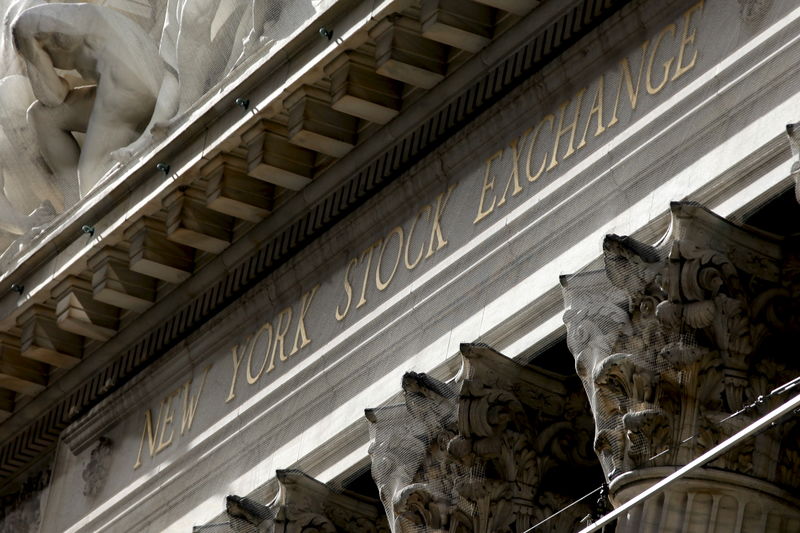By Geoffrey Smith
Investing.com -- The U.S. releases retail sales data for June, with the numbers set to figure prominently when the Federal Reserve next comes to set U.S. interest rates. U.S. stocks are set to open cautiously higher, having already braced for another big rate hike. China's economy contracted in the second quarter under pressure from lockdowns, leaving annual growth at its lowest since the start of the pandemic. Italy's President Sergio Mattarella rejected Mario Draghi's resignation as Prime Minister, and U.S. President Joe Biden is set to visit Saudi Arabia but is unlikely to get an immediate promise of higher oil production. Here's what you need to know in financial markets on Friday, 15th July.
1. Retail sales to add fuel to rate debate
The U.S. will release retail sales figures for June at 8:30 AM ET, rounding off a heavy week of inflation-themed data. Analysts expect sales to have risen 0.8% by value, having fallen 0.3% in May due to a brief dip in gasoline prices.
Key to understanding the numbers will be the need to strip out factors such as gasoline, to see what is happening to that part of consumer demand that the Fed can actually control. Federal Reserve Governor Chris Waller had said he was open to raising interest rates by a full percentage point if the data – and next week’s housing numbers – come out stronger than expected, but otherwise, both he and the similarly hawkish James Bullard are in favor of sticking with a 75 basis point hike at the Fed’s meeting at the end of the month.
The New York Empire State Manufacturing survey is also due at the same time but is unlikely to add much to the debate.
2. Chinese GDP contracts in 2Q; homebuyers' strike widens
China’s economy contracted in the second quarter, by more than expected, leaving annual growth at just 0.4% - its slowest since the start of the pandemic. The numbers led Goldman Sachs analysts to cut their Chinese growth forecast for the year again, to only 3.3%.
Monthly data for June were slightly more encouraging, with Chinese retail sales retail sales, in particular, bouncing solidly after their lockdown-driven slump.
The numbers were overshadowed by more bad news for the stricken real estate sector, where thousands of homebuyers are refusing to pay their mortgages in protest at developers’ failure to deliver presold homes as contracted. That’s creating a new source of pressure on both the developers and their Chinese bank creditors, who have been forced into making coordinated statements trying to downplay the effect on their own financial health.
3. U.S. stocks set to open cautiously higher as bank earnings continue
U.S. stocks are set to open cautiously higher after once again withstanding ostensibly negative news flow reasonably well on Thursday.
By 6:20 AM ET, Dow Jones futures were up 91 points or 0.3%, while the S&P 500 futures and Nasdaq 100 futures contracts were both up by 0.2%.
The Dow had finished lower on Thursday after JPMorgan (NYSE:JPM) hit sentiment with a 28% drop in profit that led it to suspend stock buybacks. Bank earnings continue later with Citigroup (NYSE:C), Wells Fargo (NYSE:WFC), PNC Financial (NYSE:PNC), U.S. Bancorp (NYSE:USB) and Bank of New York Mellon (NYSE:BK) all due to report.
UnitedHealth (NYSE:UNH) was first out of the gate with numbers that beat on both top and bottom lines. Also in focus later will be Amazon (NASDAQ:AMZN), as the market digests the implications of its Prime Day promotion and its moves this week to settle antitrust charges in the EU.
4. Italy on a knife-edge heading into key ECB meeting
Italian stocks and bonds recovered and the euro popped back above parity with the dollar as Italy managed to put off its next political crisis for at least a few more days.
President Sergio Mattarella rejected the resignation of Prime Minister Mario Draghi late on Thursday, which Draghi offered after losing the support of the Five Stars Movement for his reform program. He’s now due to speak to lawmakers next Tuesday, with the threat of early elections hanging over parliament.
The developments make for a tense backdrop to next week’s European Central Bank meeting, which is scheduled to discuss a new tool for keeping a lid on potentially destabilizing bond market volatility as it starts to raise interest rates for the first time in a decade.
5. Biden's Saudi visit
U.S. President Joe Biden flies to Saudi Arabia to discuss – among other things – the possibility of the Desert Kingdom pumping a little more oil, hoping to bring down domestic gas prices in time for the midterm elections in November.
Diplomatic protocol typically dictates that such visits only take place where a positive result is already guaranteed, although newswires reported earlier that an immediate announcement is unlikely, as Saudi Arabia does not wish to harm its relations with Russia, which continues to do to Ukraine what Saudi Arabia has done to Yemen for the last few years.
By 6:30 AM ET, U.S. crude futures were up 0.3% at $96.44 a barrel, having already slumped in anticipation of the visit and in alarm at growing signs of a global slowdown that were validated by China’s data overnight. Brent was up 0.8% at $99.88 a barrel.
